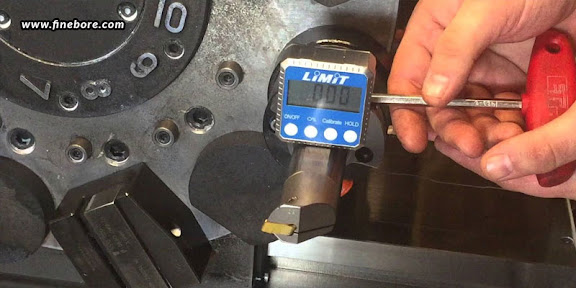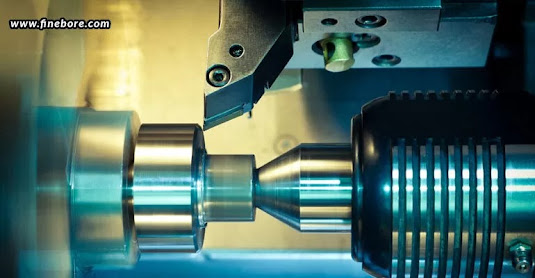Precision Boring Tool Calibration And Quality Assurance
High degrees of consistency and accuracy in machining processes across a range of sectors are dependent on precision boring tools. To ensure the quality of the finished product, these tools must be calibrated on a regular basis to preserve their accuracy and dependability. Moreover, it is essential to ensure the efficiency and reliability of machining operations by putting in place strong quality assurance procedures and getting pertinent certifications. Manufacturers can improve their machining processes, provide better outcomes, and satisfy the demanding requirements of contemporary production settings by being aware of these factors.
The importance of calibrating precision boring tools
The process of calibrating a tool or instrument involves comparing its accuracy to a standard measurement in order to verify or adjust it as required. Regular calibration of precision boring tools is essential for a number of reasons.
- Accuracy: Even the most powerful tools can suffer from wear and tear over time, which can cause small variations in their measurements. By preserving their accuracy, these instruments are kept operating within predetermined tolerance levels by regular calibration.
- Consistency: Maintaining consistency is essential for generating high-quality components throughout machining processes. By preserving the consistency of tool performance, calibration makes sure that every machined product satisfies the required standards.
- Reduced defects: The possibility of creating faulty components, which may result in expensive rework and material waste, is reduced when tools are calibrated. This is especially crucial in sectors where accuracy is critical, including aerospace and medical equipment.
- Prolonged tool life: Frequent calibration can also aid in early detection of any problems, enabling prompt repair and extending the tools' lifespan.
Manufacturers may maintain the accuracy, consistency, and efficiency of their machining operations by routinely calibrating their precision boring equipment. By lowering errors and prolonging the life of the tool, this lowers operating expenses while simultaneously raising the quality of the finished product.
How to calibrate precision boring tools
In order to guarantee that precision boring tools are functioning properly, calibration entails many steps.
- Baseline measurement: Measuring the instrument in relation to a standard can establish a baseline. A coordinate measuring machine, gauge block, or other high-precision device might serve as the standard here. Measurements from the tool should be compared to the baseline to determine if there are any standard deviations.
- Adjustment: To fix any discrepancies, the required changes need to be made to the tool, which might entail readjusting the tool's software or making mechanical modifications, after which any other measurement of the tool should be taken to make sure the modifications have returned it to within allowable tolerance ranges.
- Documentation: Maintaining thorough records of every step of the calibration procedure, including measurements, corrections, and the tool's ultimate, validated condition is essential for the purpose of quality control and future reference.
Manufacturers can guarantee the accuracy and dependability of their precision boring tools and provide high-quality machining results by adhering to these aforementioned guidelines.
Implementing robust Quality Assurance Systems
In machining, quality assurance (QA) refers to a methodical process used to guarantee that products fulfil criteria and are error-free. QA procedures for precision boring tools consist of -
- Inspection of incoming materials: Before allowing any materials or components to proceed into production, it is important to make sure they are free of defects. This preliminary inspection helps in avoiding the use of subpar materials in the finished product.
- In-process inspection: Throughout the machining process, routine inspections of the tools and parts need to be done to reduce the possibility of generating defective goods by assisting in the early discovery of any deviations or flaws and enabling prompt adjustments.
- Final inspection: Making sure the completed goods fulfil all requirements and quality standards by performing comprehensive inspections guarantees clients to get only those products that successfully pass stringent quality inspections.
- Statistical process control (SPC): Keeping an eye on and managing the machining process by applying statistical techniques, enables proactive modifications to uphold constant quality and stop faults before they start.
- Corrective and preventive actions (CAPA): Implementing CAPA procedures help to deal with any problems that are found. Corrective measures are intended to address current issues and prevent future ones. The goal of preventive activities is to spot any problems before they arise and put precautions in place to avoid them.
Manufacturers can guarantee that their precision boring tools fulfil the highest requirements of quality control by using these QA procedures, thereby enhancing the overall efficiency and effectiveness of machining operations.
The effectiveness of machining operations in a variety of sectors depends critically on precision boring tool calibration and quality assurance. While strong quality assurance procedures and certifications assure the dependability and precision of machining operations, routine calibration guarantees the accuracy and consistency of these tools. FineTech Toolings, one of the most reputed boring tools suppliers in Bangalore, sets the standard for excellence in this industry with its dedication to quality, innovation, and client happiness, serving a multitude of clients from electronics, medical, automotive, and aerospace industries. They implement strict quality assurance procedures and cutting-edge calibration techniques to guarantee excellent accuracy and consistency. With ISO 9001 and ISO 17025 certifications, FineTech Toolings maintains strict quality control and calibration guidelines. Furthermore, before delivery, all the products are guaranteed to fulfill strict quality criteria through routine in-process and final inspections. Because of its commitment to quality, innovation, and client satisfaction, FineTech Toolings has been recognized as a reliable leader in the precision tooling industry.




Comments
Post a Comment